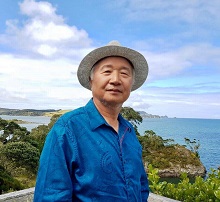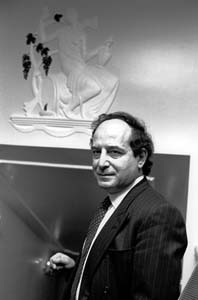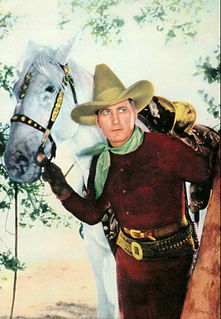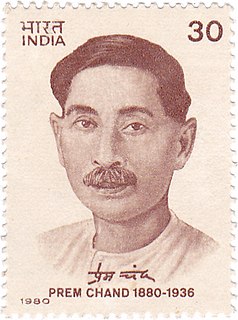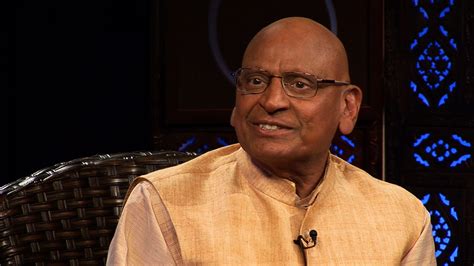A Quote by Jacques Barzun
A person is not a democrat thanks to his ignorance of literature and the arts, nor an elitist because he or she has cultivated them. The possession of knowledge makes for unjust power over others only if used for that very purpose: a physician or lawyer or clergyman can exploit or humiliate others, or he can be a humanitarian and a benefactor. In any case, it is absurd to conjure up behind anybody who exploits his educated status the existence of an "elite" scheming to oppress the rest of us.
Quote Topics
Absurd
Any
Anybody
Arts
Because
Behind
Benefactor
Case
Conjure
Democrat
Educated
Elite
Elitist
Existence
Exploit
Exploits
He Or She
His
Humanitarian
Humiliate
Ignorance
Knowledge
Lawyer
Literature
Makes
Nor
Only
Others
Over
Person
Physician
Possession
Power
Power Over Others
Purpose
Rest
She
Status
Thanks
Them
Unjust
Up
Us
Used
Very
Related Quotes
We have the Noble Desire to help others and benefit the world, without expecting any return or recognition. What makes us great is not our knowledge, skill, money, or power. What makes us great is not our knowledge, skill, money, or power. What makes us truly great is this noble desire, this passion that transcends all separation, goes beyond one's limitations, and wants to hug others and embrace the whole world. This is not something that we need to learn, because we already have it. It just needs to be acknowledged and awakened.
The monster does not need the hero. it is the hero who needs him for his very existence. When the hero confronts the monster, he has yet neither power nor knowledge, the monster is his secret father who will invest him with a power and knowledge that can belong to one man only, and that only the monster can give.
The essential facts are known. We know of the weapons in Saddam's possession: chemical, biological, and nuclear in time. We know of his unequaled willingness to use them. We know his history. His invasions of his neighbors. His dreams of achieving hegemonic control over the Arab world. His record of anti-American rage. His willingness to terrorize, to slaughter, to suppress his own people and others. We need not stretch to imagine nightmare scenarios in which Saddam makes common cause with the terrorists who want to kill us Americans and destroy our way of life.
Power is a poison well known for thousands of years. If only no one were ever to acquire material power over others! But to the human being who has faith in some force that holds dominion over all of us, and who is therefore conscious of his own limitations, power is not necessarily fatal. For those, however, who are unaware of any higher sphere, it is a deadly poison. For them there is no antidote.
Man—every man—is an end in himself, not a means to the ends of others; he must live for his own sake, neither sacrificing himself to others nor sacrificing others to himself; he must work for his rational self-interest, with the achievement of his own happiness as the highest moral purpose of his life.
The humanitarian wishes to be a prime mover in the lives of others. He cannot admit either the divine or the natural order, by which men have the power to help themselves. The humanitarian puts himself in the place of God.
But he is confronted by two awkward facts; first, that the competent do not need his assistance; and second, that the majority of people positively do not want to be "done good" by the humanitarian. Of course, what the humanitarian actually proposes is that he shall do what he thinks is good for everybody. It is at this point that the humanitarian sets up the guillotine.
The mere possession of a vision is not the same as living it, nor can we encourage others with it if we do not, ourselves, understand and follow its truths. The pattern of the Great Spirit is over us all, but if we follow our own spirits from within, our pattern becomes clearer. For centuries, others have sought their visions. They prepare themselves, so that if the Creator desires them to know their life's purpose, then a vision would be revealed. To be blessed with visions is not enough...we must live them!
Whoever is full of wisdom is naturally compassionate; in fact we recognize that someone has gained spiritual wisdom by seeing their compassionate behavior. . . . Individuals and countries with power need to develop wisdom and compassion, for without these attributes, there is a danger that the power will be used to oppress and exploit others. (31)
There must be only three supreme values which govern a person's life: Reason, Purpose, and Self-esteem. Reason, as his only tool of knowledge--Purpose, as his choice of the happiness which that tool must proceed to achieve--Self-esteem, as his inviolate certainty that his mind is competent to think and his person is worthy of happiness, which means: is worthy of living. These three values imply and require all of man's virtues, and all his virtues pertain to the relation of existence and consciousness: rationality, independence, integrity, honesty, justice, productiveness, pride.



